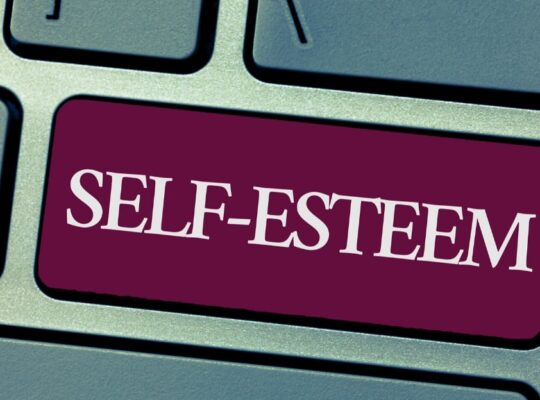Being self-assured is one of the most valuable and useful traits you can develop as a human being. To feel self-assured means to have confidence in yourself and your abilities. It means feeling comfortable in your own skin and having a positive self-image.
People who are self-assured are typically more assertive, decisive, and able to handle challenges and obstacles with a level head. They are less likely to be swayed by the opinions of others and more likely to stand up for their own sets of beliefs and values.
Feeling self-assured can lead to a greater sense of happiness, fulfillment, and success in life, as it allows individuals to pursue their goals and dreams with confidence and resilience. With all of these great benefits, it’s no mystery why developing a strong sense of self-assurance is so important.
30 Day Challenge For A More Confident You
3 Dangers Of Not Building Your Sense Of Self-Assurance
Failing to build a strong sense of self-assurance can lead to some troubles in life, including…
1| Missed opportunities.
Without a sense of self-assurance, you may hesitate to pursue new opportunities or take on challenges. This fear of failure or self-doubt can hold you back from reaching your full potential and experiencing personal and professional growth. You may find yourself stuck in your own comfort zone, missing out on exciting prospects and valuable experiences that could contribute to your personal development and success.
2| Limited self-expression.
Lack of self-assurance can hinder your ability to express your true thoughts, feelings, and opinions. You may hold back from asserting yourself in various situations, whether it’s at work, in relationships, or in social settings. This can lead to feelings of frustration, regret, and a sense of being unheard or undervalued. It can also hinder the development of healthy boundaries and prevent you from advocating for your needs and desires.
3| Feelings of low self-worth and self-esteem.
When you lack self-assurance, it can negatively impact your self-worth and self-esteem. You may constantly seek validation and approval from others, relying on external sources to feel worthy or valued. This dependence on external validation can be draining and unstable, as it leaves you vulnerable to the opinions and judgments of others. It can also contribute to a cycle of self-criticism and self-doubt, eroding your confidence and overall well-being.
Additionally, without a strong sense of self-assurance, you may struggle with decision-making, constantly second-guessing yourself and relying on others to make choices for you. This can lead to feelings of powerlessness and a lack of control over your own life.
Overall, not developing a sense of self-assurance can limit your personal and professional growth, hinder self-expression, and negatively impact your self-worth and self-esteem. It is essential to cultivate a strong belief in yourself, trust your abilities, and embrace your uniqueness to navigate life with confidence, resilience, and authenticity.
30 Questions To Ask Yourself To Boost Your Self Confidence
50 Ways You Can Make Yourself Feel More Self-Assured
1| Take care of your physical health by eating well, exercising regularly, and getting enough sleep.
When you aren’t taking care of your basic physical needs, you simply will not feel your best. It’s difficult to feel confident or self-assured if you’re feeling sleepy, lethargic, or unnourished. Take special care of your physical health by meeting all your body’s needs–doing so is an excellent way to make yourself feel more self-assured.
2| Practice positive self-talk by replacing negative thoughts with positive ones.
The way you talk to yourself has a profound effect on your confidence. Negative self-talk, such as self-criticism and self-doubt, can erode your self-assurance. By consciously replacing negative thoughts with positive ones, you reframe your mindset and cultivate a more supportive inner dialogue.
Affirming your strengths, focusing on your achievements, and acknowledging your worth empowers you and enhances your self-assurance. Positive self-talk helps you develop a more compassionate and encouraging relationship with yourself, promoting a confident and resilient mindset.
3| Dress in a way that makes you feel confident and comfortable.
Your appearance can immensely impact how you feel about yourself. Dressing in a way that aligns with your personal style and tastes and makes you feel confident and comfortable can positively influence your self-assurance. When you feel good about how you present yourself to the world, it boosts your self-image and enhances your overall confidence. Expressing your unique personality through your clothing choices can also serve as a form of self-expression, allowing you to feel authentic and empowered.
4| Surround yourself with supportive people who encourage you to be your best self.
The people you surround yourself with have a significant impact on your confidence. Building a network of supportive individuals who genuinely believe in you and encourage your personal growth can be invaluable. Positive influences provide reassurance, constructive feedback, and a sense of belonging, which bolsters your self-assurance. Being in the company of supportive friends, mentors, or family members who inspire and uplift you reinforces your belief in your abilities and helps you face challenges with greater confidence.
The Art of Confidence Power Mindset
5| Set realistic goals for yourself and celebrate your achievements, no matter how small.
Setting realistic goals allows you to have a clear direction and purpose in life. When you set achievable milestones and work towards them, you experience a sense of progress and accomplishment. Each step forward reinforces your belief in your abilities, leading to increased self-assurance. Celebrating your achievements, even the small ones, acknowledges your efforts and affirms your capability, boosting your confidence and motivating you to continue striving for success.
6| Develop a hobby or skill that makes you feel accomplished.
Engaging in activities that bring you joy and a sense of accomplishment is a powerful way to boost your self-assurance. Pursuing a hobby or skill that you are passionate about allows you to develop expertise and experience a sense of mastery. As you improve and see tangible results, your confidence grows. The process of learning and honing your abilities reinforces your belief in your capacity to learn, adapt, and succeed, fostering a strong sense of self-assuredness.
7| Take time to reflect on your strengths and accomplishments.
Regularly reflecting on your strengths and past accomplishments helps you recognize and appreciate your capabilities. Remind yourself of the challenges you have overcome, the skills you have developed, and the positive qualities you possess. This self-reflection boosts your self-esteem and builds confidence by highlighting your past successes and reminding you of your potential for future achievements.
8| Practice mindfulness and meditation to calm your mind and reduce stress.
Mindfulness and meditation techniques can be powerful tools for cultivating self-assurance. By practicing mindfulness, you learn to focus on the present moment, observe your thoughts and emotions without judgment, and develop a greater sense of self-awareness. This practice reduces stress and anxiety, allowing you to approach challenges and uncertainties with a calmer and more confident mindset.
9| Volunteer or help others in need to boost your self-esteem.
Giving back to others can have a profound impact on your self-esteem and self-assurance. Volunteering or helping those in need allows you to make a positive difference in the lives of others, which in turn boosts your own sense of purpose and self-worth. Contributing your time, skills, or resources to a cause you care about enhances your confidence by affirming your ability to make a meaningful impact on the world.
10| Learn to say “no” to things that don’t align with your values or goals.
Setting boundaries and learning to say “no” when necessary is crucial for maintaining your self-assurance. By prioritizing your own needs, values, and goals, you assert your autonomy and take control of your life. Saying “no” to commitments or situations that don’t align with your priorities allows you to focus on what truly matters to you, fostering a greater sense of confidence in your choices and actions.
Supreme Self Confidence – Self Confidence
11| Take a break from social media to reduce comparison and focus on your own journey.
Social media platforms can sometimes fuel feelings of inadequacy and self-comparison. Taking a break from social media allows you to disconnect from the constant stream of curated highlight reels and refocus your attention on your own journey.
It is incredibly easy to compare your real life to the “lives” curated by people on their social media feeds. By reducing comparison and limiting exposure to unrealistic standards, you create space for self-reflection, personal growth, and building confidence based on your own achievements and progress.
12| Try new things and step out of your comfort zone to build confidence.
Stepping out of your comfort zone and embracing new experiences is a powerful way to cultivate self-assurance. When you challenge yourself to try new things, whether it’s taking up a new hobby, learning a skill, or participating in unfamiliar activities, you expand your capabilities and demonstrate to yourself that you are capable of growth and adaptation. Each new experience, even if it comes with a degree of uncertainty or discomfort, boosts your confidence by showing you that you can handle and thrive in new situations.
13| Surround yourself with positive affirmations and quotes.
Surrounding yourself with positive affirmations and quotes can have a significant impact on your mindset and self-assurance. Displaying affirmations or quotes that inspire and uplift you in visible places, such as on your mirror or computer screen, serves as constant reminders of your worth and potential. These positive messages reinforce a belief in yourself, counteract self-doubt, and help cultivate a positive and confident mindset.
14| Keep a gratitude journal to focus on the good things in your life.
Practicing gratitude is a powerful way to shift your focus from what you lack to what you have, which contributes to increased self-assuredness. Keeping a gratitude journal allows you to regularly reflect on and appreciate the positive aspects of your life. By acknowledging and documenting the things you are grateful for, you cultivate a sense of abundance, contentment, and self-worth. This practice helps reframe your mindset to focus on the good and fosters a greater sense of confidence and positivity.
15| Practice deep breathing exercises to reduce anxiety and stress.
Deep breathing exercises, such as diaphragmatic breathing or box breathing, help activate the body’s relaxation response and reduce anxiety and stress. When you practice deep breathing, you bring your attention to the present moment and calm your mind and body. By reducing feelings of anxiety and stress, you create space for clarity and self-assurance to emerge. Deep breathing exercises promote a sense of calm and centeredness, allowing you to approach challenges and situations with a greater sense of confidence and composure.
30 Day Challenge To Build Your Self-Confidence
16| Get organized and set up a schedule or routine that works for you.
Organization and structure can contribute to a greater sense of control and self-assurance. When you establish a schedule or routine that aligns with your goals and priorities, you create a framework that supports your productivity and well-being. By managing your time effectively and having a clear plan in place, you reduce feelings of overwhelm and increase your confidence in your ability to accomplish tasks and meet your commitments.
17| Learn to accept compliments graciously instead of deflecting them.
Accepting compliments graciously is a reflection of self-assurance. Instead of dismissing or deflecting compliments, learn to receive them with gratitude and confidence. By acknowledging and internalizing the positive feedback from others, you reinforce a positive self-image and build confidence in your abilities and qualities. Over time, you’ll find it easier and easier to accept these kind comments as the truth.
18| Focus on what you can control instead of worrying about things outside of your control.
Focusing on what you can control empowers you to take charge of your own life and decisions. By directing your energy and attention towards the aspects within your control, such as your attitude, actions, and choices, you develop a sense of agency and self-assurance. This shift in focus helps you let go of unnecessary worry about external factors, allowing you to channel your energy towards productive and positive endeavors.
19| Take responsibility for your actions and learn from your mistakes.
Taking responsibility for your actions demonstrates maturity and self-assuredness. Instead of blaming others or making excuses, owning up to your mistakes shows integrity and a willingness to learn and grow. By embracing accountability, you gain valuable insights from your experiences, make necessary improvements, and build confidence in your ability to navigate challenges and make better choices in the future.
20| Don’t be afraid to ask for help or support when you need it.
Seeking help or support when needed is a sign of strength, not weakness. Recognize that everyone encounters situations where they require assistance or guidance. By reaching out for support, whether it’s from friends, family, mentors, or professionals, you demonstrate self-awareness and a commitment to your growth. Accepting help fosters a sense of empowerment and confidence, as you realize that you don’t have to face challenges alone.
21| Focus on your strengths instead of your weaknesses.
Shifting your focus to your strengths helps build self-assurance. Recognize and celebrate the qualities, skills, and talents that you excel in. By directing your attention towards what you do well, you boost your self-esteem and confidence. Emphasizing your strengths allows you to approach tasks and challenges with a positive mindset, knowing that you have the capabilities to succeed.
22| Treat yourself to small indulgences or rewards when you reach a goal.
Celebrating your accomplishments, no matter how big or small, is an essential part of building self-assurance. By rewarding yourself with small indulgences or treats when you achieve a goal, you reinforce a positive association with your efforts and accomplishments. This practice nurtures a sense of self-appreciation and motivates you to continue striving for success.
23| Practice assertiveness by standing up for yourself and your needs.
Developing assertiveness skills is crucial for building self-assurance. Assertiveness involves expressing your thoughts, opinions, and needs in a respectful and confident manner. By advocating for yourself and setting boundaries, you cultivate a sense of self-worth and ensure that your voice is heard. Practicing assertiveness allows you to navigate interpersonal interactions with confidence and assert your needs and desires.
24| Keep a list of your accomplishments and review it regularly.
Keeping a list of your accomplishments serves as a tangible reminder of your capabilities and achievements. By reviewing this list regularly, you reinforce a positive self-image and build confidence in your abilities. It allows you to reflect on your progress, recognize your strengths, and appreciate the milestones you have reached. This practice provides a sense of validation and self-assurance, reminding you of what you are capable of accomplishing.
25| Practice positive visualization by imagining yourself succeeding in the future.
Positive visualization involves creating mental images of yourself successfully achieving your goals or overcoming challenges. By vividly imagining yourself in these positive scenarios, you train your mind to focus on success rather than failure. This technique enhances your self-assurance by creating a positive expectation and belief in your abilities. It helps build confidence by aligning your thoughts with the outcome you desire, boosting your motivation and self-confidence in the process.
26| Learn to forgive yourself for mistakes and past failures.
Self-forgiveness is a powerful practice that contributes to self-assurance. We all make mistakes and experience failures, but holding onto guilt or regret undermines our confidence. By learning to forgive yourself, you release the burden of past mistakes and free yourself from self-judgment. Forgiving yourself allows you to embrace self-compassion, acknowledge growth opportunities, and move forward with a greater sense of self-assuredness.
27| Practice self-compassion and be kind to yourself.
Self-compassion involves treating yourself with kindness, understanding, and empathy, especially during challenging times. When you practice self-compassion, you acknowledge that everyone makes mistakes and faces difficulties, and that you deserve kindness and support, just like anyone else. This nurturing attitude towards yourself fosters a positive self-perception and builds self-assurance. By extending compassion and understanding to yourself, you cultivate a foundation of self-worth and acceptance, which fuels your confidence.
28| Learn to trust your intuition and make decisions that align with your values.
Trusting your intuition and making decisions that align with your values is a key aspect of self-assurance. When you tune into your inner wisdom and trust your gut instincts, you demonstrate confidence in your judgment and abilities. By honoring your values and making choices that resonate with your authentic self, you cultivate a sense of self-assuredness and integrity. Trusting yourself empowers you to make decisions confidently, knowing that you are acting in alignment with your true self.
29| Make time for hobbies or activities that bring you joy.
Engaging in hobbies or activities that bring you joy is essential for building self-assurance. Pursuing activities you love creates a sense of fulfillment, boosts your mood, and enhances your overall well-being. By dedicating time to these enjoyable pursuits, you nurture your passions and talents, which positively impacts your self-perception and confidence. Participating in activities that bring you joy allows you to showcase your skills, experience a sense of accomplishment, and build confidence in your abilities.
30| Practice good posture and maintain eye contact during conversations.
Body language plays a significant role in how others perceive us and how we perceive ourselves. Practicing good posture and maintaining eye contact during conversations projects confidence and self-assuredness. When you stand tall, with an open and upright posture, you exude confidence and command respect. Similarly, maintaining eye contact demonstrates attentiveness, engagement, and assertiveness. By consciously practicing these non-verbal cues, you enhance your self-assured presence and create a positive impression in social interactions.
31| Keep a positive attitude and focus on the good things in life.
Maintaining a positive attitude contributes to self-assuredness. When you adopt a positive mindset, you approach challenges with optimism and hopefulness. By maintaining this kind of energy in your life–even when doing so is difficult–you can build a culture of positivity within yourself, which can help you feel far more confident and self-assured.
32| Set boundaries with toxic people or situations that drain your energy.
Setting boundaries is crucial for protecting your well-being and maintaining a sense of self-assuredness. By establishing clear limits with toxic people or situations that drain your energy, you prioritize your mental and emotional health. This act of self-care reinforces your self-worth and sends a message that you value yourself enough to create healthy boundaries. It allows you to cultivate a supportive environment that nurtures your confidence and fosters positive relationships. It can be difficult to set limits with anyone, even toxic people, but doing so is a huge boost to your self-assurance.
33| Take a course or attend a workshop to develop new skills.
Engaging in continuous learning and skill development is an excellent way to boost your self-assurance. By taking a course or attending a workshop related to your interests or career goals, you invest in your personal growth and development. Acquiring new skills or knowledge enhances your expertise and competence, which in turn bolsters your confidence. The act of actively pursuing learning opportunities demonstrates your commitment to self-improvement and reinforces your belief in your ability to acquire and apply new skills.
34| Practice active listening during conversations to show that you care.
Active listening involves fully engaging in conversations and giving your full attention to the speaker. By practicing active listening, you demonstrate genuine interest in the other person’s thoughts and feelings. This form of attentive and empathetic communication not only strengthens your relationships but also boosts your self-assuredness. When you actively listen, you contribute to meaningful and authentic connections, which affirm your interpersonal skills and increase your confidence in social interactions.
35| Learn to let go of things that don’t serve you or bring you happiness.
Letting go of things that no longer serve you or bring you happiness is an empowering act that fosters self-assurance. It could involve releasing negative beliefs, toxic relationships, or self-imposed limitations. This can be incredibly difficult, even if you really need to let go of something in your life–letting go of the familiar can be a challenge, but it is often necessary. By decluttering your life from what weighs you down, you create space for positive experiences, personal growth, and increased confidence. Letting go is an act of self-respect and self-care that allows you to prioritize your well-being and move forward with greater confidence and clarity.
36| Make time for self-care activities, such as taking a bath or reading a book.
Engaging in self-care activities is crucial for nurturing your self-assurance. Taking time to prioritize self-care allows you to recharge, relax, and nurture your overall well-being. Whether it’s indulging in a warm bath, reading a book, practicing mindfulness, or engaging in a hobby you enjoy, these activities replenish your energy and provide a sense of inner peace. By making self-care a priority, you affirm your worth and reinforce the belief that you deserve time and attention, which contributes to increased self-assurance.
37| Practice gratitude by expressing appreciation for the people and things in your life.
Cultivating an attitude of gratitude has a profound impact on your self-assuredness. By consciously expressing appreciation for the people, experiences, and blessings in your life, you shift your focus towards the positive aspects. This practice helps you recognize the abundance and value in your life, fostering a sense of contentment and confidence. When you acknowledge and appreciate what you have, you develop a positive outlook and an inner belief in your ability to navigate life’s challenges with grace and gratitude.
38| Use positive affirmations to boost your confidence and self-esteem.
Positive affirmations are powerful statements that help shift your mindset and reinforce positive beliefs about yourself. By regularly repeating affirmations such as “I am capable,” “I am deserving of success,” or “I believe in myself,” you program your subconscious mind with empowering thoughts. This practice replaces self-doubt and negative self-talk with self-assurance and self-belief. Positive affirmations serve as reminders of your strengths and potential, building a foundation of confidence and self-esteem.
39| Make a list of your personal values and live by them.
Identifying and living by your personal values is an essential component of self-assuredness. When you clarify your values and align your actions with them, you create a sense of integrity and authenticity. Living in alignment with your values allows you to make decisions confidently, knowing that they are grounded in what truly matters to you. This practice fosters self-assuredness by providing a clear framework for your choices and actions, leading to a greater sense of purpose and fulfillment.
40| Practice forgiveness towards others to release negative feelings and emotions.
Forgiveness is a powerful act that liberates you from negative emotions and allows you to reclaim your confidence. When you practice forgiveness towards others who may have hurt or wronged you, you free yourself from the burden of resentment, anger, or bitterness. Forgiveness is not condoning the actions but rather choosing to let go of the negative emotions associated with them. When you choose to forgive someone, you aren’t “letting them off the hook”–instead, think of forgiving them as a means of letting yourself be free from them. By releasing these negative feelings, you create space for healing, personal growth, and increased self-assurance.
41| Take breaks when needed to avoid burnout and overwhelm.
Taking regular breaks is crucial for maintaining your overall well-being and preserving your self-assurance. Pushing yourself to the point of burnout or overwhelming yourself with responsibilities can erode your confidence and lead to exhaustion. By recognizing when you need to pause, rest, and recharge, you prioritize self-care and set boundaries. Taking breaks allows you to regain focus, clarity, and energy, enabling you to approach tasks with renewed confidence and effectiveness.
42| Practice self-awareness by identifying your emotions and needs.
Self-awareness is a key aspect of self-assuredness. By developing the ability to identify and understand your emotions and needs, you gain a deeper understanding of yourself. This self-awareness allows you to make choices and take actions that align with your authentic self, leading to increased confidence. When you can clearly articulate your emotions and communicate your needs, you cultivate a sense of self-assurance by honoring your own feelings and advocating for yourself.
43| Set realistic expectations for yourself and others.
Setting realistic expectations is essential for maintaining a healthy sense of self-assuredness. When you set overly high or unrealistic expectations, you set yourself up for disappointment and self-doubt. By setting attainable goals and having reasonable expectations of yourself and others, you create a positive environment that fosters confidence. Setting realistic expectations allows you to acknowledge and celebrate your achievements, reinforcing your belief in your abilities.
44| Surround yourself with positive role models who inspire you.
The people you surround yourself with have a significant impact on your confidence levels. By seeking out positive role models who embody the qualities and values you admire, you expose yourself to their positive influence. Being around individuals who inspire and uplift you helps you envision the possibilities for your own growth and success. Their presence and support can boost your self-assurance by providing encouragement, guidance, and inspiration.
45| Create a vision board or a goal list to focus on your aspirations.
Creating a visual representation of your aspirations through a vision board or a written goal list is a powerful tool for boosting self-assurance. These visual reminders serve as constant motivators and keep you focused on your dreams and aspirations. They provide clarity and direction, helping you build confidence by actively working towards your goals. Regularly reviewing your vision board or goal list reinforces your belief in your ability to achieve what you desire.
46| Learn to stand up for your beliefs and opinions.
Assertiveness is a crucial skill for building self-assuredness. When you can confidently express your beliefs and opinions, you assert your right to be heard and respected. Standing up for your beliefs shows self-respect and demonstrates confidence in your values and convictions. By engaging in respectful and constructive communication, you build confidence in expressing your thoughts and contribute to meaningful conversations. Learning to assert yourself empowers you to make your voice heard and strengthens your self-assuredness.
47| Practice gratitude by expressing appreciation for the people and things in your life.
Gratitude is a powerful practice that shifts your focus from what you lack to what you have. By regularly expressing appreciation for the people, experiences, and blessings in your life, you cultivate a positive mindset and develop a deeper sense of self-assurance. Gratitude helps you recognize the abundance and value in your life, fostering feelings of contentment and confidence. When you acknowledge and appreciate the positive aspects of your life, you strengthen your belief in your ability to navigate challenges and attract more positivity.
48| Create a supportive network of friends, family, or peers.
Surrounding yourself with a supportive network of individuals who believe in you and uplift you is vital for building self-assurance. Having a reliable support system provides encouragement, guidance, and validation, which can significantly boost your confidence. These individuals offer a safe space for sharing your thoughts, dreams, and challenges, allowing you to feel heard and understood. Their unwavering support helps you believe in yourself and your abilities, reinforcing your self-assurance.
49| Take responsibility for your own happiness and well-being.
Taking ownership of your happiness and well-being is a fundamental aspect of self-assuredness. When you recognize that your happiness is not solely dependent on external circumstances or other people, you reclaim your power and autonomy. By prioritizing self-care, setting boundaries, and engaging in activities that nourish your well-being, you cultivate a strong foundation of self-assurance. Taking responsibility for your own happiness empowers you to make choices that align with your values and needs, enhancing your confidence and sense of self. This doesn’t mean that you are never going to face struggles or hardships–however, it does mean that you have the power to choose how you’re going to react and what attitude you’ll assume about it, which is incredibly powerful for your self-assurance.
50| Focus on progress, not perfection, and celebrate every step along the way.
Embracing a mindset of progress over perfection is essential for fostering self-assurance. Instead of striving for flawless outcomes, focus on the growth, improvement, and effort you put into your endeavors. Celebrate every step you take, no matter how small, towards your goals. Recognizing and appreciating your progress builds confidence, as it highlights your ability to learn, adapt, and achieve. By shifting your perspective to value progress, you develop a resilient and self-assured mindset that encourages continuous growth.
The Bottom Line
By embracing these 50 ways to feel more self-assured, you are embarking on a transformative journey of self-discovery and personal growth. Each strategy serves as a stepping stone towards building a strong and unshakeable sense of confidence and belief in yourself. As you implement these different practices into your life, you will witness a profound shift in your mindset, behavior, and overall sense of well-being.
Remember, building self-assurance is not an overnight process. In fact, many people learn that building and reinforcing their sense of self-assurance is a life-long process. It requires patience, perseverance, and self-compassion.
Celebrate every small victory and acknowledge the progress you make along the way. Recognize that setbacks and challenges are opportunities for growth and learning. Embrace them as stepping stones rather than stumbling blocks, and accept that life will be filled with situations that test your self-assurance.
By incorporating these 50 strategies, you are cultivating a deep sense of self-awareness, self-acceptance, and self-love. You are learning to let go of limiting beliefs, negative self-talk, and self-doubt. Instead, you are nurturing a positive and empowering inner dialogue that uplifts and motivates you. This shift in mindset will fuel your confidence and propel you towards success in all areas of your life, helping you build a more fulfilling and happier relationship with yourself in the process.
Embrace your uniqueness and value your individuality. Recognize that comparison is the thief of joy, and focus instead on your own progress and journey. Surround yourself with supportive and uplifting individuals who inspire and encourage you to be your best self. Seek out mentors, role models, and friends who believe in your potential and push you to reach new heights.
As you implement self-care practices, prioritize your well-being, and engage in activities that bring you joy, you are nurturing your inner confidence. Taking care of yourself physically, mentally, and emotionally lays the foundation for a strong sense of self-assurance. It equips you with the energy and resilience needed to face challenges head-on and overcome life’s various obstacles.
Remember that self-assurance is not about being flawless or having all the answers. It is about embracing your strengths, acknowledging your areas for growth, and having faith in your ability to learn, adapt, and thrive. Trust yourself and your intuition. Trust that you have the inner resources and resilience to handle whatever comes your way.
Embrace this journey of self-discovery and self-assurance with an open mind and a compassionate heart. Be patient and kind to yourself as you navigate the ups and downs. Celebrate the progress you make, no matter how small, and let each step forward fuel your confidence and propel you towards a more fulfilling and authentic life.
You have everything within you to feel truly self-assured and live a life that reflects your unique essence. Embrace the power within you and let your inner confidence shine brightly. The world awaits your greatness, and with each intentional action and mindset shift, you are stepping into your full potential. Trust yourself, believe in yourself, and let your self-assurance guide you towards a life of purpose, fulfillment, and joy.







